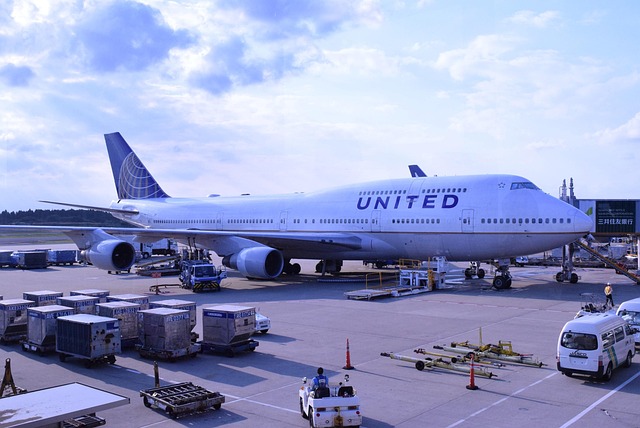Work at Airports – Structured Roles in Japan’s Aviation Sector
Employment at airports in Japan covers a variety of tasks such as check-in support, loading and unloading cargo, and assisting with flight operations. Roles often provide clear guidelines, training, and supervision. These positions can suit candidates seeking structured work in a dynamic environment.

Key Duties in Baggage Services, Passenger Guidance, and Flight Preparation
Airport baggage services form a crucial component of the passenger experience in Japanese airports. Staff in this department are responsible for ensuring luggage moves efficiently from check-in counters to aircraft and back to travelers at their destinations. Duties include operating scanning equipment, managing tracking systems, sorting baggage according to flight destinations, and handling special items requiring extra care. Staff also respond to inquiries about delayed or missing luggage, requiring both technical knowledge of baggage systems and customer service skills.
Passenger guidance personnel serve as the visible face of the airport, assisting travelers throughout their journey. Their responsibilities include directing passengers to correct check-in counters, security checkpoints, and boarding gates; providing information about flight status and airport facilities; and offering special assistance to travelers with disabilities, elderly passengers, or families with young children. In Japan’s airports, these roles require clear communication skills and patience, especially when navigating language barriers with international travelers.
Flight preparation staff work behind the scenes to ensure aircraft are ready for departure. These teams coordinate with airlines, ground handlers, catering services, and maintenance crews. They verify that passenger manifests are accurate, cargo is properly loaded, and all pre-flight checks are completed according to strict safety protocols. This role involves precise documentation and adherence to both international aviation standards and Japan’s specific regulations.
Importance of Teamwork and Time Management in Airport Operations
Airport operations represent a complex ecosystem where multiple departments must synchronize their activities to maintain efficient service. In Japanese airports, which pride themselves on punctuality, effective teamwork is essential across baggage handling, boarding procedures, security screenings, and aircraft servicing. Teams must communicate seamlessly across departments, often using specialized terminology and protocols specific to aviation.
Time management carries particular significance in Japanese airport operations. With tight turnaround schedules for aircraft and the need to minimize delays, staff must complete their duties within precise timeframes. At busy airports like Haneda or Narita, which handle hundreds of flights daily, even minor delays can cascade into significant disruptions. Personnel are trained to work efficiently while maintaining Japan’s high standards for service quality. Performance metrics often track on-time departure rates, baggage delivery speed, and customer satisfaction scores.
Work Opportunities Across Different Terminals and Airlines
Japan’s major airports offer diverse employment environments across multiple terminals and airlines. Narita International Airport, with its three terminals, houses operations for over 70 airlines, creating distinctive work cultures and requirements. Similarly, Haneda Airport’s domestic and international terminals present varying work experiences, with international terminals requiring stronger language skills and cultural awareness.
Employment opportunities exist directly with airlines, airport management companies, and third-party service providers. Japan Airlines and ANA (All Nippon Airways), as the country’s major carriers, maintain substantial staff at their hub airports. International airlines also employ local staff for their Japanese operations. Additionally, specialized service companies handle security, retail, food service, and other airport functions, providing alternative entry points into aviation careers.
Skills Useful for Customer Interaction and Logistics
Success in Japan’s airport environment requires a balanced skill set combining technical capabilities with interpersonal strengths. For customer-facing roles, communication skills are paramount, with English proficiency increasingly valued alongside Japanese language abilities. Cultural sensitivity helps staff navigate interactions with diverse international travelers while maintaining Japan’s reputation for exceptional service.
Logistics roles demand attention to detail, spatial awareness, and technical aptitude for operating specialized equipment. Many positions require certification for operating vehicles or handling specific aspects of airport operations. Physical stamina is necessary for roles involving extended periods of standing or handling luggage. Additionally, problem-solving abilities are essential for addressing the unexpected challenges that frequently arise in airport operations.
Application Process for Airport Jobs in Japan
The application pathway for airport positions in Japan typically begins online through airline career portals, airport management websites, or employment agencies specializing in aviation. Foreign applicants should verify visa eligibility, as many positions require valid work permits or specific visa categories. Japanese language proficiency requirements vary by role, with customer-facing positions generally demanding higher language skills.
The selection process often includes multiple interview rounds, background checks, and sometimes aptitude testing. Security-sensitive positions require additional screening. Once hired, employees undergo comprehensive training programs covering both general airport protocols and role-specific skills. Many airports and airlines provide ongoing professional development opportunities, allowing staff to advance from entry-level positions to supervisory or specialized roles.
For foreign workers, major international airports like Narita and Haneda offer more English-language work environments than regional airports. Some airlines and service providers specifically seek multilingual staff to enhance their service for international travelers, creating opportunities for those with strong language skills even if their Japanese proficiency is still developing.
Working in Japan’s airports combines the structure and precision the country is known for with the dynamic energy of international travel. For those interested in aviation, customer service, or logistics, these roles offer valuable experience within one of the world’s most respected transportation networks.




